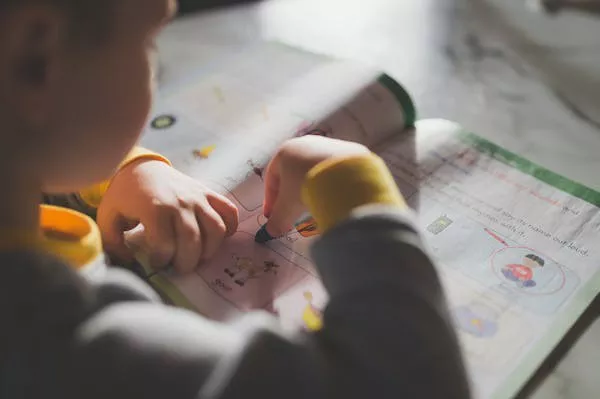In the journey of parenthood, one of the most essential aspects is ensuring your baby’s comfort and hygiene. Diapers play a pivotal role in this regard, but as your little one grows, you may find yourself wondering, “How many diapers per day does my baby need?” To address this common concern, we have prepared a comprehensive guide that outlines the diapering needs of infants through various stages of development. By following the guidelines in this article, you can ensure your baby stays dry and comfortable at every age.
Newborns (0-3 Months):
Newborns are known for their frequent diaper changes. On average, your baby may go through 10 to 12 diapers per day during this stage. This high frequency is due to their tiny bladders and rapid digestion.
To keep your baby’s delicate skin healthy, choose diapers designed for newborns with a soft, breathable lining.
Infants (3-6 Months):
As your baby enters the infant stage, their bladder capacity increases slightly. You can expect to change diapers approximately 7 to 9 times a day.
Keep in mind that each baby is unique, so monitor your little one’s cues for wet diapers to adjust the frequency accordingly.
Babies (6-12 Months):
Babies between 6 to 12 months typically require around 6 to 8 diapers daily. By this age, they start to eat solid foods, which can affect their bowel movements and diaper usage.
To reduce environmental impact, consider eco-friendly diapering options, such as cloth diapers or compostable disposables.
Toddlers (12-24 Months):
Toddlers are becoming more active and may use fewer diapers than before, averaging 5 to 7 diaper changes daily.
It’s a good time to start potty training. Look for signs of readiness, like showing interest in the toilet, and encourage your child to use it.
Preschoolers (2-4 Years):
By the time your child reaches preschool age, their diapering needs further decrease to around 4 to 6 diapers daily.
Continue with potty training, and celebrate their successes to motivate them further.
Beyond Preschool (4+ Years):
Ideally, children should be fully potty trained by the age of 4. Diapers become unnecessary at this stage.
If bedwetting is a concern, consider using training pants designed for older children. This phase typically resolves on its own with time.
Additional Tips:
Keep in mind that these are general guidelines, and individual babies may vary in their diapering needs.
Always prioritize your baby’s comfort and hygiene by changing diapers promptly when wet or soiled.
Choose high-quality diapers that are gentle on your baby’s skin and provide adequate absorption.
Monitor your baby’s growth and development, as this can impact their diapering requirements.
Conclusion:
In conclusion, understanding how many diapers per day your baby needs at each age is essential for ensuring their comfort and well-being. By following the age-specific guidelines provided in this comprehensive guide, you can navigate the diapering journey with confidence. Remember that every child is unique, so adapt these recommendations to suit your baby’s individual needs. Prioritize your baby’s comfort, and you’ll both enjoy a smoother parenting experience as your little one grows and develops.
FAQs about how many diapers per day by age chart
What should I do if my baby exceeds the recommended diaper changes per day?
If your baby goes through more diapers than the suggested range for their age, it’s perfectly normal. Some babies have more frequent urination or bowel movements. Ensure you change diapers promptly to maintain their comfort and hygiene.
Is it okay to use cloth diapers instead of disposable ones?
Yes, cloth diapers are a eco-friendly and cost-effective option. The recommended diaper changes per day in the chart apply to both cloth and disposable diapers. Keep in mind that cloth diapers may require more frequent changes as they are less absorbent than disposables.
When should I start potty training my child?
Most children show signs of readiness for potty training between 18 months and 3 years old. Look for cues such as an interest in the toilet, staying dry for longer periods, and expressing discomfort when their diaper is soiled. Begin potty training when your child is ready.
What if my toddler resists potty training?
Some toddlers may resist potty training initially. Be patient and provide positive reinforcement. Offer rewards or praise for successful toilet use, and avoid negative reactions to accidents. Every child progresses at their own pace.
Should I be concerned if my child still needs diapers beyond the age of 4?
While most children are fully potty trained by age 4, it’s not uncommon for some to continue needing diapers at night. This is often due to nighttime bedwetting, which can be a normal part of development. If bedwetting continues beyond age 5 or becomes a concern, consult a pediatrician for guidance.
What are the signs that my baby’s diaper may not be fitting properly?
Signs of an ill-fitting diaper include frequent leaks, red marks on the baby’s skin, or discomfort. Ensure the diaper fits snugly but not too tight, and adjust the size as your baby grows.
Can I reduce diaper usage to save money and minimize waste?
To reduce diaper usage, consider practicing elimination communication, which involves recognizing your baby’s cues for elimination and offering a potty instead of a diaper. Additionally, using cloth diapers, if feasible, can help reduce waste and save money in the long run.
Should I be concerned if my child experiences diaper rash frequently?
Frequent diaper rash can be uncomfortable for your child. Ensure you change diapers promptly and use diaper creams to protect their skin. If diaper rash persists, consult your pediatrician for guidance.


